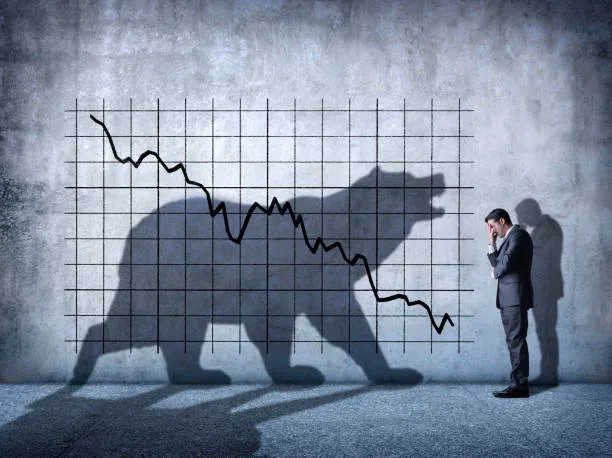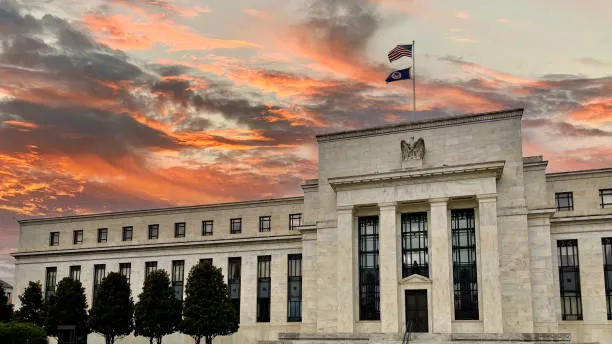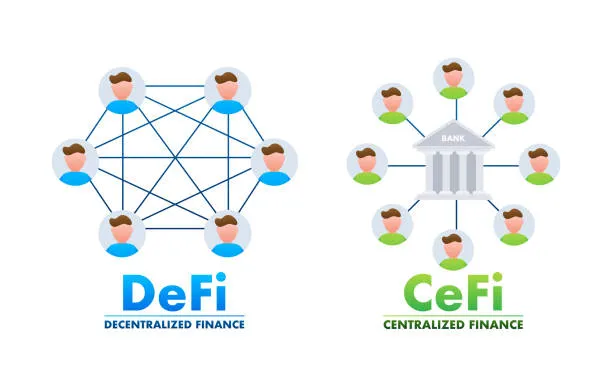
Thank goodness there is something called innovation . I wonder how the world would have gone about it’s affairs without it . Crypto was born out of the ashes of the 2008 Financial Crisis as an alternative monetary solution .It did so on the core premise of decentralisation, one that isn’t susceptible to the influences of centralised institutions. Fourteen years later, crypto has garnered mainstream interest and cemented itself as a disruptor to the traditional financial system, but this proposition has been questioned and is constantly tested.

The current bear market is the latest example of this. Whilst grappling with the aftermath of the Terra/Luna crash and the domino effect that led to the collapse of Celsius, Three Arrows Capital (3AC), and Voyager, one might wonder if crypto is suffering from the same problem that it was once created to solve.

It is pretty obvious we are witnessing the growth of crypto, culturally and otherwise, via mainstream adoption across various sectors including art, film, music and business.
The onboarding of institutional investors into the industry has accelerated this adoption. BlockData reported that of the top 100 listed public companies, 40 have invested in blockchain & crypto companies between September 2021 and June 2022, including financial empires such as BlackRock, Samsung, and Goldman Sachs. Each major investment bridges the gap between traditional financial markets and the emerging crypto market, but widespread adoption will only be meaningful if the industry is willing to confront some of its fundamental issues.
The world is reeling from the events of the last two years. The COVID-19 pandemic and the Ukraine Crisis have had a catastrophic effect on the global economy, its effects reverberating across regions at huge economic, financial, and humanitarian costs. I’m sure you’ll trust the US Federal Reserve to tapper off its pandemic-era economic stimulus, which of course resulted in the shrinkage of the US economy during the first two quarters of 2022.
Amid fears of a looming recession, the US Federal Reserve also managed the complicated task of combatting sky-high inflation by increasing the interest rate by 75 base points in July 2022, the largest hike since 1994.

While the impact of the Fed’s recent policies cannot be understated, with some arguing that the interest rate hikes created a dollar liquidity crisis, which catalysed the Terra/Luna collapse, it was the unsustainable business models of CeFi [centralised finance] lending platforms that set the foundation for, and incentivised arguably unscrupulous behaviours that sparked the crypto contagion.
When centralised lending platforms entered the industry during the previous bull run, they saw the lack of regulatory structures in place as an opportunity to make easy money in the absence of robust credit conditions. How did they do this you might want to ask .
First off, lenders began leveraging high-yield returns to investors. In the case of Celsius for example, the crypto lending platform promised high yield returns of up to 18% APY (annual percentage yield), placing part of their investors’ deposits in yield aggregators and other DeFi (decentralized finance) protocols.
Also, they imposed a far-reaching and unstructured lending system, sanctioning loans with assets that they themselves borrowed from various decentralised exchanges. Essentially, paying off the debt of a credit card with another credit card. Robbing Peter to pay Paul, classic!

Unarguably ,easy money is rarely ever sustainable it seems. Y’all know how the saying goes “if it’s too good to be true, it usually is”.
When Terra collapsed back in May, the crypto market experienced tremorous shockwaves which exposed the overleveraged positions of many crypto lending firms. During the Terra collapse, it was reported that Celsius withdrew an estimated ETH 225,000 out of Anchor Protocol ;
a borrowing and lending platform developed by Terra.
Of course the resulting effects of this mishap is the fallout of this exposed the flawed business models of CeFi lending platforms and in the process caused life savings and investments to plummet on the part of ordinary investors.
With these occurrences does the call for stabilizing the market through regulations sound louder?
There is certainly no cause to doubt that the crypto lending crisis will accelerate the regulatory crackdown, whether that's for optics purposes or a genuine readiness to implement change.
Already, we are obviously beginning to see the discourse shift, focusing on the classification of digital assets into either securities or commodities. Legislative bodies are issuing guidance for banks considering digital asset investment. And on a greater scale, regulators imposing their authority on major crypto players.
Crypto is a decentralised and borderless product, and regulation, by default, requires the presence of a centralised player and to intervene when market forces fail.
Yeah right proponents in the crypto community will staunchly oppose any notion of regulation. Albeit if we want to create an environment that encourages institutional onboarding and protects retail investors, we need to welcome an open dialogue on regulation and a bottom-up approach.
the regulation bridge has to be crossed

This means not only a willingness to engage with regulators, but also incentivising creators and builders of crypto projects to implement rules by design. Regulation of crypto is highly complex due to the innate contradiction between one and the other. There are more questions than answers at this point, but it’s important we ask the right questions in order to find a right path forward.
Does regulation completely undermine the premise on which crypto exists, and to what extent? Is there a balance or threshold we are willing to accept??
Crypto is a unique alternative solution to the traditional markets, and a powerful one at that. However, if it wants to continue challenging the status quo and co-exist with its traditional counterparts, it needs to be realistic about some of its fundamental flaws and adopt an open-door policy to address them.
No one paradigm can be the answer to everything, but maturing the DeFi sector is integral because it is without a doubt the future of finance.